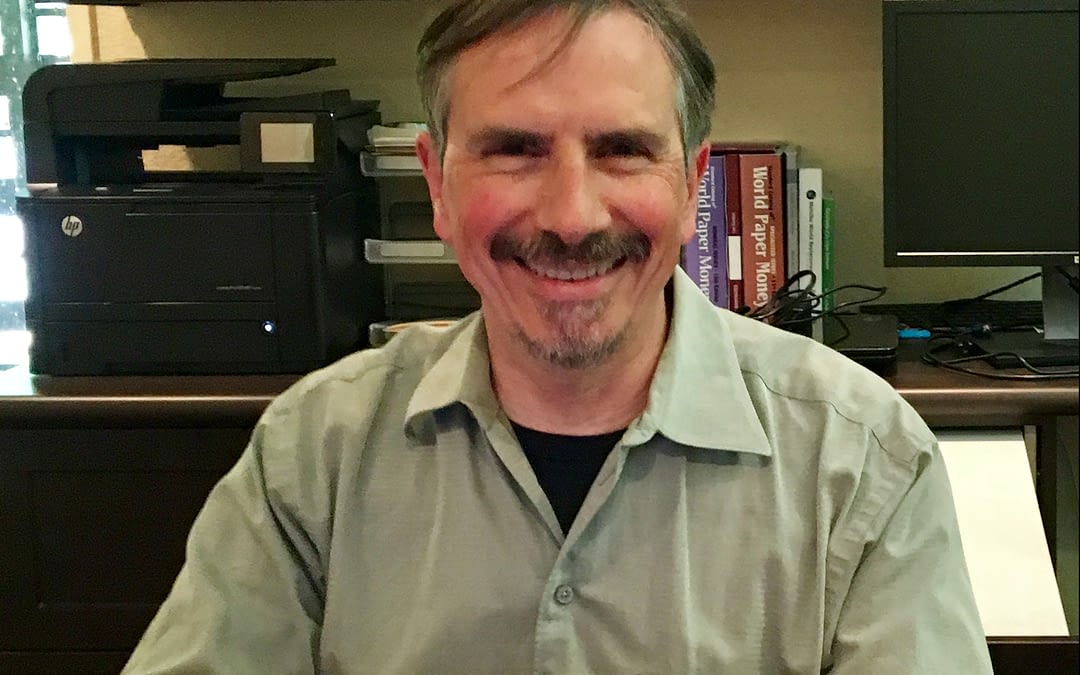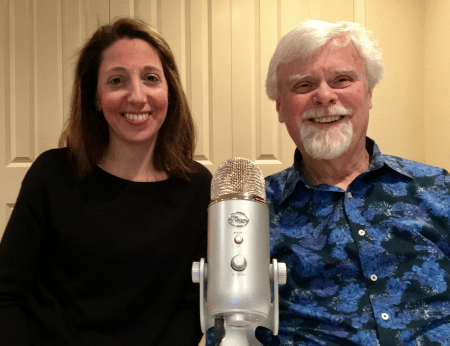Rhonda, Fabrice and I received a number of thoughtful emails following our recent podcast on mindfulness meditation, which seems to be quite popular these days, but there some push-back from listeners who all did not agree that mindfulness is an effective way of combating negative thoughts and feelings.
Email from Jeremy
Hi David,
I listened to the Feeling Good Podcast on meditation this morning and had some thoughts I wanted to share. For context I’ve been meditating daily for about 3 months.
First – I personally think that if someone is struggling with depression or anxiety, TEAM-CBT is a dramatically faster acting and more powerful tool than mindfulness. I’ve never seen or heard about someone having a dramatic recovering in just a few hours due to mindfulness. I’ve never seen the idea of resistance explored in any kind of mindfulness book or article.
I also don’t really think much of mindfulness as a “method” in the TEAM model, because compared to the other methods for removing negative thoughts it’s extremely weak. I imagine that with hundreds of hours of mindfulness practice you might reach a point where it’s easier to let go of negative thoughts. (There are a lot of reports like that/) However, it’s a very slow way of dealing with negative thoughts compared to externalization of voices etc.
I think for a therapist who knows TEAM to suggest mindfulness as a key practice to their patient is almost negligent, since TEAM is so much more effective.
That said, I’ve sensed a few benefits of mindfulness which is why I’ve been investing my time in it:
– I think you can view meditation as concentration practice, and I’ve found that meditation increases my ability to concentrate
– You can reach a very calm and relaxed state in meditation where you cease to have thoughts, and this state is extremely pleasurable
– I’ve noticed that mindfulness increase my ability to enjoy experiences, including experiences I might enjoy less if I was having even positive or neutral thoughts. As an example, after about 30 minutes of meditation the other day I went for a walk in the woods and stop for about 10 minutes to look at a ridge. My visual experience was completely immersive and I even started to feel like the trees were breathing with me. It was one of the high points of my week. I suspect that even someone who had no negative thoughts might be flooded with positive but irrelevant thoughts (like a yummy meal they might be headed to eat later) would have enjoyed this scene much less.
I’ve also run an experiment using the PAS and CBT to remove the motivation to have distracting thoughts. (ie write down the advantages to having distracting thoughts and disadvantages of focusing on the breath, and then talk back to those) I would classify it as a highly successful experiment, after talking back to all the good reasons to think about something besides my breath my focus got dramatically better. I wonder if this technique could be used to either improve meditation or even supplant the need for it. (because it gets rid of distracting thoughts directly, while meditation is basically practice for having fewer distracting thoughts)
Anyway, just thought I would share some thoughts and ideas with you.
Best,
Jeremy
Email from Paul
Hey, Dr. Burns!
I am with you in terms of the skepticism of mindfulness as a panacea. I also am not sure how particularly effective it is even as a tool in the fight against negative thoughts. I personally cannot seem to get anything out of it, but I am trying to make sense out of how so many people can find it useful.
Perhaps you could put it like this: Mindfulness is not a specific technique for specific problems, but a general method for psychological health. If you have a specific medical condition, you’ll want to get a specific treatment. Sometimes specific conditions can be alleviated by taking care of your health generally (eating healthier, sleeping better, etc.) Still, depending upon the disease, in order to get rid of it, you’ll need a specific treatment. However, even when you’re not dealing with a specific disease, generally good health practices can lower your chances of getting any diseases and lessen the severity when they do arise. In sum, perhaps the goals of mindfulness and CBT are different.
I think that might respect what both you and Fabrice are getting at. I think this goes to answer partly a question I’ve had about TEAM. To what extent is alleviation of anxiety, depression, etc the final goal? Are there religious, spiritual, or psychological problems that are positive goals beyond relief? In Feeling Good, it sounded like you thought that happiness was just the absence of depression. Is that all there is to say about human flourishing? Or do you methodologically stick within the parameters of your client’s value system, asking only “what can I help you with” because you’re a psychologist and not a priest, for example?
Paul
David and Rhonda discuss several important points raised by these listeners, including:
Non-specific vs. / specific interventions. David describes an elderly man named Ezekiel who had escaped from Nazi Germany as a teenager, and still felt like a “totally worthless human being” in spite of incredible success in life. He’d start out shining shoes on the streets of New York City) and end up as a wealthy industrialist, but that did nothing to boost his self-esteem. He’d decades of psychotherapy as well, but it was not effective.
David encouraged him to jog long distances daily to boost the release of “endorphins” in the brain, but that did not work either. Nor would medication or meditation have worked, either.
When you learn why Ezekiel felt like a “worthless human being,” you’ll see exactly why! And you’ll also learn what did work to end decades of suffering and self-doubt.
The time required for meditation, not only during sessions, but in between sessions, is considerable. David would prefer his patients use this time for doing specific psychotherapy homework.
Formulaic treatment. Life has always been stressful, and people are always looking for some simple “solution” to emotional problems, which seem almost universal. The current wellness fad is a great example of that. So, people promote a healthy diet, daily exercise, daily meditation, daily prayer, relaxation training, deep breathing, expressing gratitude, and a host of other things as the secret of happiness and contentment.
These formulas, in my opinion (DB), do not have, and will never have, more than a placebo effect in the treatment of stress. depression, anxiety disorders, relationship problems, and habits and addictions. Sadly, those who are hugely enthusiastic about one of these fads, or formulas, will not want to hear what I just said, as sometimes we just don’t want to have our beliefs challenged. We see this resistance in politics, in religion, and in almost every aspect of our lives.
Mindfulness is already a TEAM technique, even without meditation–but not a terribly effective method, in David’s clinical experience. However, for certain kinds of recurrent negative thoughts, Self-Monitoring and Reattribution can be helpful. These techniques are similar to Mindfulness Meditation, but are only two of more than 100 Methods David uses in treatment, and they are not for everybody. David gives an example of the intensely anxious eye doctor with OCD who was afraid of going blind, who responded to Self-Monitoring and Response Prevention.
There’s nothing wrong with a healthy diet, or meditation, or prayer, or anything that you enjoy, anything that gives you a sense of meaning. But these non-specific approaches should not be confused with specific treatments for depression, anxiety disorders, conflicts in relationships with others, or habits and addictions.
Thanks for listening!
David and Rhonda
You can reach Dr. Burns at david@feelinggood.com. Dr. Rhonda Barovsky practices in Walnut Creek, California, and can be reached at rbarovsky@aol.com.
If you like our jingle music and would like to support the composer Brett Van Donsel, you may download it here.
* * *
THREE COOL UPCOMING WORKSHOPS FOR YOU
TEAM-CBT Methods for Anxiety Disorders–
Step-by-Step Training for Therapists
by David D. Burns, MD and Jill Levitt, PhD
Dr. Jill Levitt and I are offering what I think will be an outstanding workshop on the treatment of anxiety disorders on Sunday, May 19, 2019. Our Sunday workshops are tremendously fun, so consider attending if you are interested.
The last Sunday workshop in February sold out quickly so register soon if you are interested. You can join in Palo Alto in person or online from anywhere in the world.
THERE WILL BE MANY EXPERT TRAINERS TO GUIDE THE ONLINE PARTICIPANTS DURING THE SMALL GROUP EXERCISES
WHEN: May 19, 2019, 8:30 am – 4:30 pm PST
(11:30 am-7:30 pm EST)
WHERE: Join us live online or in person at the Creekside Inn, Palo Alto, CA.
HOW MUCH DOES IT COST? $135,
WILL I GET CE CREDITS? YES! 7 CE hours available
WILL I GET CREDIT IN THE TEAM LICENSURE PROGRAM? YES!
Completion of this workshop also counts towards TEAM-CBT Level 1, 2 or 3 Certification
WHO CAN ATTEND? Therapists of all levels are welcome
CAN I REGISTER IF I’M NOT A THERAPIST? Although the workshop is geared for therapists, it will be taught in a clear and basic way that anyone can benefit from.
WILL I HAVE FUN? Yes!
WILL I HAVE GET TO HANG OUT WITH SOME COOL COLLEAGUES? Yes!
WILL I GET AN AWESOME FREE BREAKFAST AND LUNCH? Yes!
You will love this lively, amusing, and immensely useful day of training with Drs. Burns, Levitt and the Feeling Good Institute Staff. The trainers will use a combination of didactic teaching, live demonstrations, video, and breakout group practice to enhance skill-building.
REGISTER / LEARN MORE
Act fast if you want to attend!
* * *
And there will be two awesome summer intensives for you this year!
July 15 – 18, 2019
Calgary four-day intensive
Sponsored by Jack Hirose & Assoc.
July 29 – August 1, 2019
South San Francisco four-day intensive
Sponsored by Praxis



